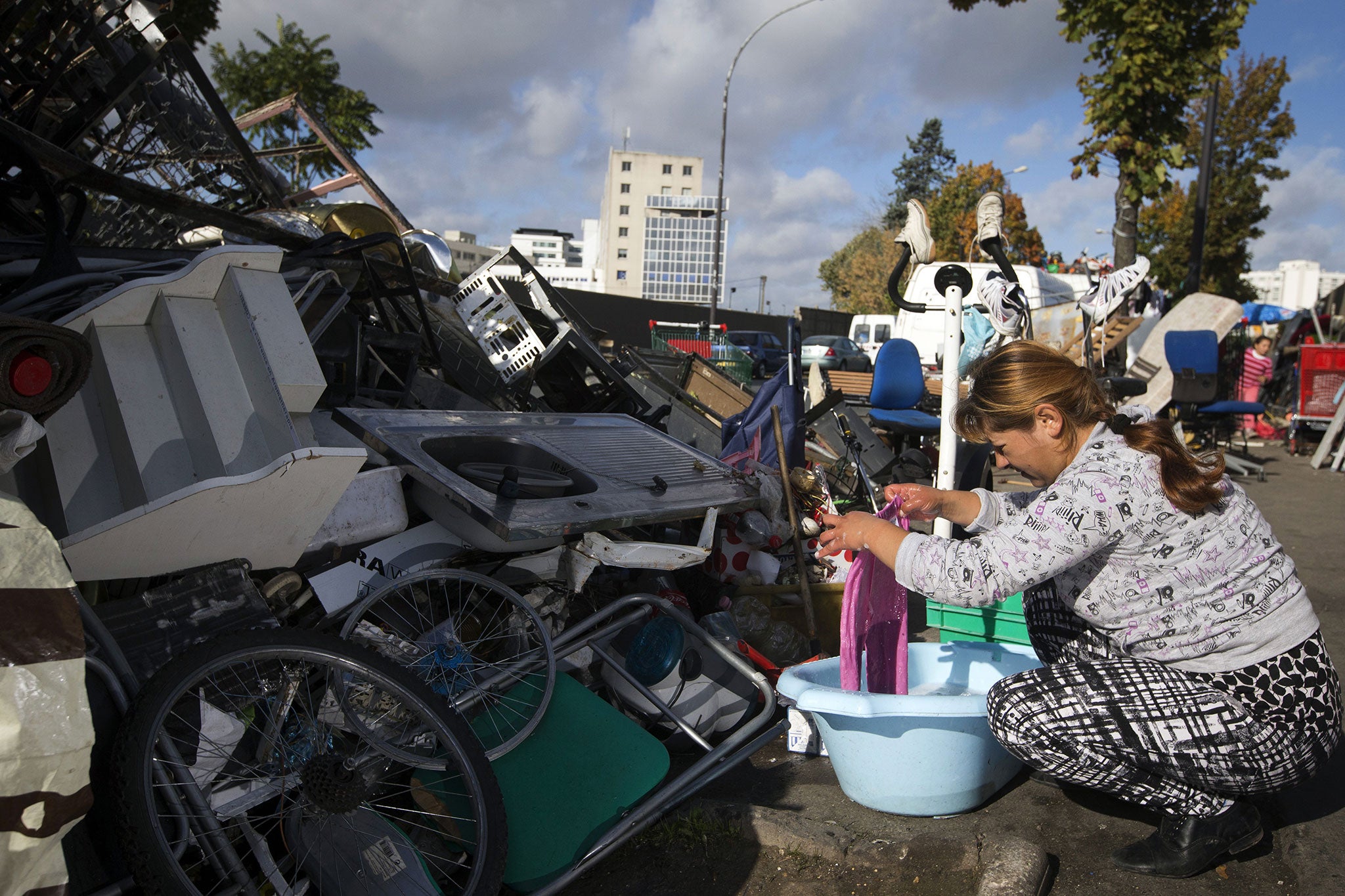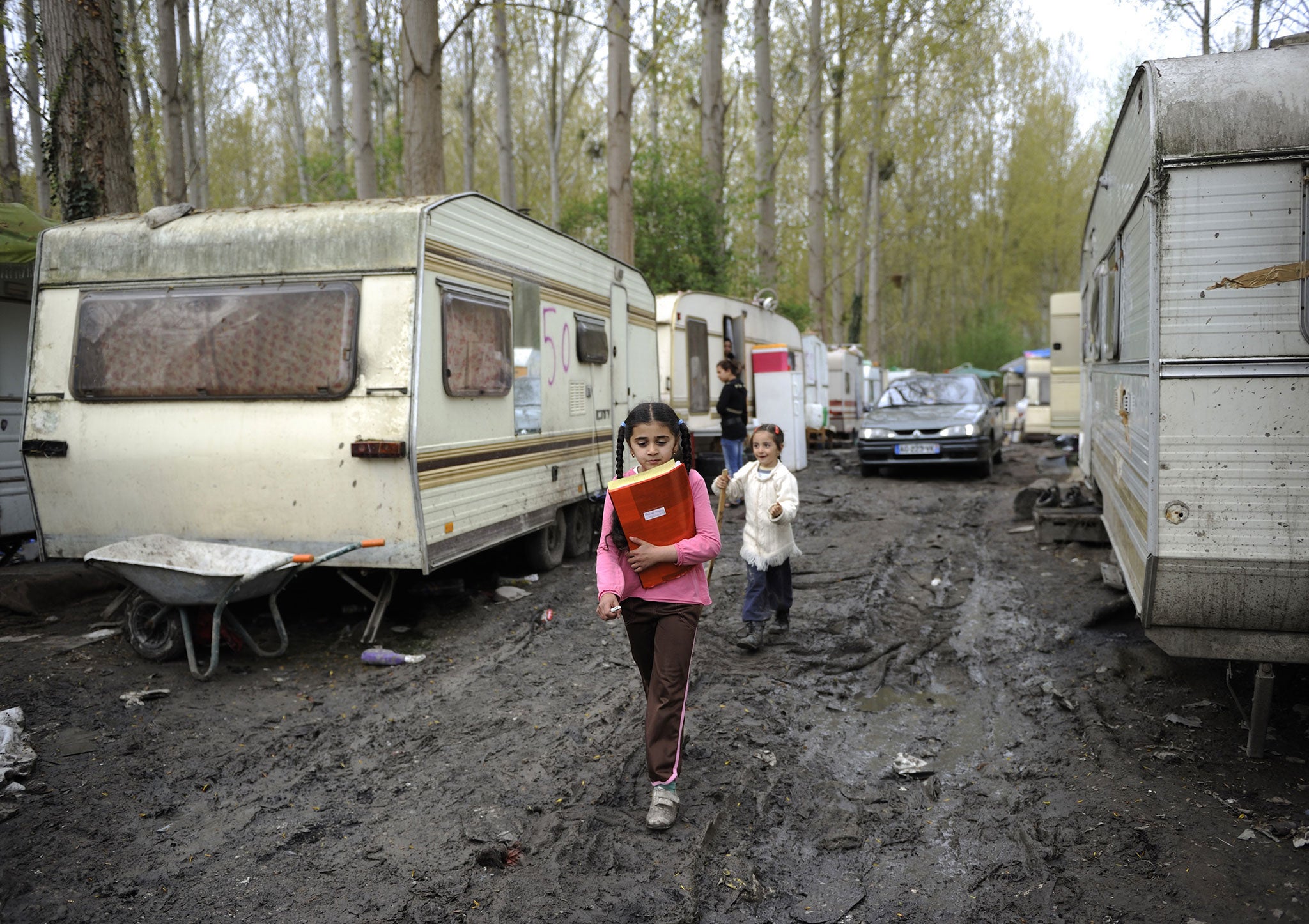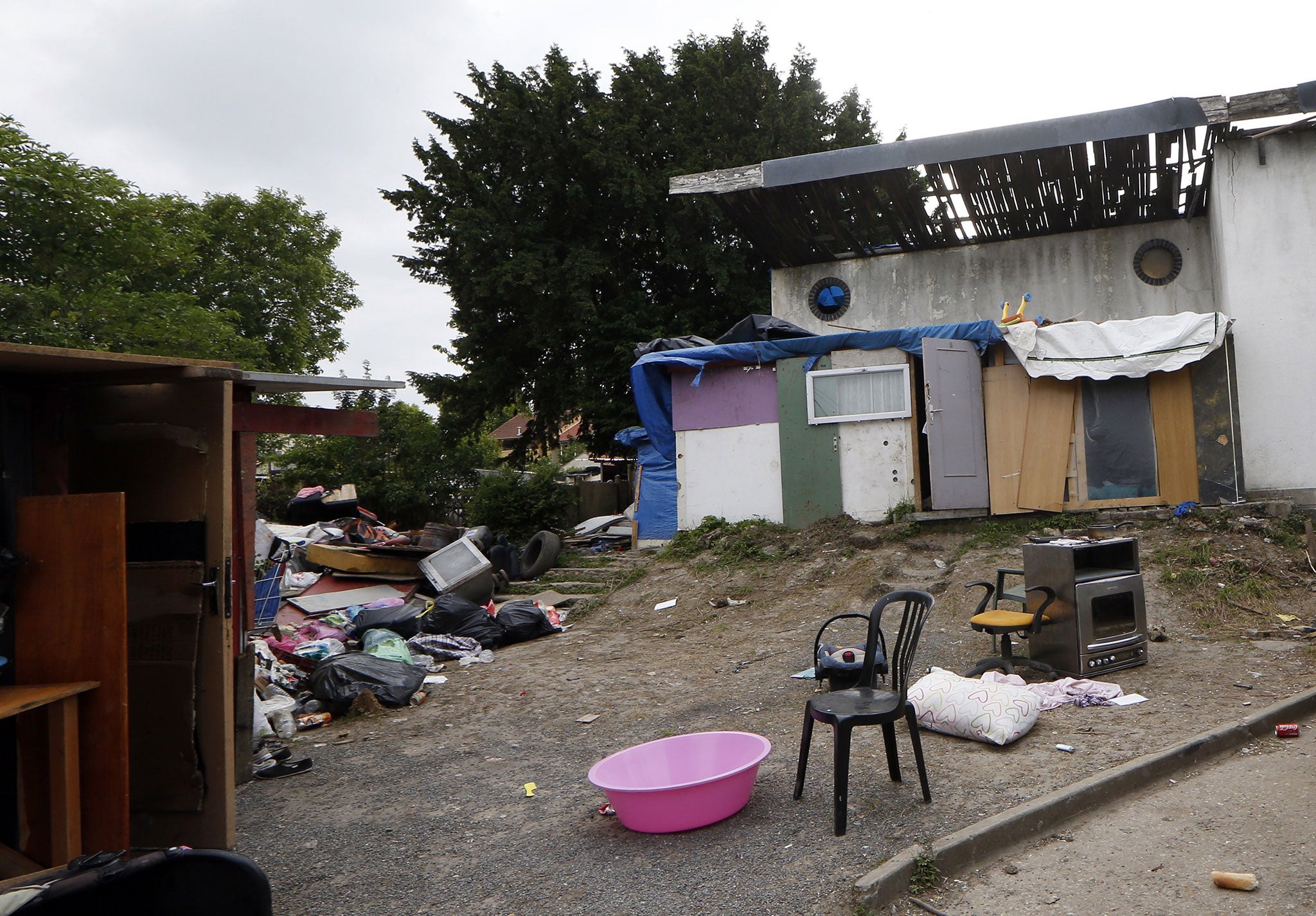France’s unwanted tenants: Fear is part of the Roma's world
At least 20,000 Roma live in France legally, but they survive in shantytowns and are constantly moved on. Anne Penketh reports on the social tensions, and charities’ frustrations

Your support helps us to tell the story
From reproductive rights to climate change to Big Tech, The Independent is on the ground when the story is developing. Whether it's investigating the financials of Elon Musk's pro-Trump PAC or producing our latest documentary, 'The A Word', which shines a light on the American women fighting for reproductive rights, we know how important it is to parse out the facts from the messaging.
At such a critical moment in US history, we need reporters on the ground. Your donation allows us to keep sending journalists to speak to both sides of the story.
The Independent is trusted by Americans across the entire political spectrum. And unlike many other quality news outlets, we choose not to lock Americans out of our reporting and analysis with paywalls. We believe quality journalism should be available to everyone, paid for by those who can afford it.
Your support makes all the difference.The Roma community in France, targeted by vigilante attacks, harassment and discrimination, faces a summer of evictions from rat-infested squalid camps in city suburbs where they have set up home.
“It’s the end of the school year, there’s a big risk,” said Bernard Prieur, standing beside a group of Roma sitting on some old chairs beside a rickety caravan in their shantytown south of Paris. Mr Prieur works for a local charity in Ivry-sur-Seine which helps the Roma in the camp, and on Thursday night took part in a protest outside regional administrative offices over rumours that 400 people would be moved out next week.
The camp, located at the end of a dirt track filled with the stench of urine, is strewn with broken furniture, old tyres and piles of rubbish. Fifteen-year-old Pichina Caicou has lived in camps with her extended family for the past three years and attends a local school. They came from Romania because there was “no work and nothing to eat”, she says. “We’re afraid, sometimes Moroccans come and threaten us,” she says in fluent French.
Having fled discrimination in Romania or Bulgaria, the Roma have fared no better in France. With most Roma concentrated in the Paris region, where their encampments are often next to the grim tower blocks in the surburbs ringing the city, tensions between the residents who are mainly from North or sub-Saharan Africa and the impoverished new arrivals are running high.
Roma, also known as Gypsies, are believed to have migrated from northern India to Europe in the 12th century. Their language is similar to Hindu and Punjabi and British Roma have been resident in the UK for centuries.

Last January, a Roma camp of 200 people at La Courneuve, north of Paris, was burned down. In February, an eight-year-old girl died when a shantytown in the nearby suburb of Bobigny was set ablaze. In the most recent incident which shocked the country, a 17-year-old Roma youth from the northern suburb of Pierrefitte-sur-Seine was beaten and left for dead in a supermarket trolley on 13 June by a group of about 20 men from the nearby tower blocks. The camp where he lived has now been abandoned.
No arrests have been made against the attackers of the youth named Darius, who was rumoured to have broken into a flat in the surburban ghetto. He is still in a coma.
Asked about how local residents in Ivry-sur-Seine feel about their Roma neighbours in the camp, a middle-aged woman replied: “How do you think we feel? It’s awful,” as she gestured towards a heap of old clothes on the pavement outside the camp.
An employee of a pizza restaurant said that sometimes camp residents “come inside to beg for money from customers. They ask for food, but we can’t give them any.”

The Roma have been blamed for a rash of pickpocketing targeting Parisians and tourists who are frightened by the groups of children who descend on their victims. Police have dismantled a series of organised gangs based in the Paris suburbs in recent years.
But, says Mr Prieur, “we may be afraid of them, but they’re scared of the aggression from outside. They are constantly being made to move, which makes their existence even more precarious. Fear is part of their world.” Mr Prieur, who was about to accompany a Roma woman to the local job centre, said he was unaware of serious tensions with the people of Ivry-sur-Seine. “What people can’t stand is to see the conditions like this.”
His organisation, the Collectif de Soutien de Roms à Ivry-sur-Seine, wants authorities to get rid of the shantytowns and find homes for families, while keeping their children at school. A total of 90 children from the camp attend school.
But although EU funds are available for housing the Roma, who are in France legally, they are in competition with needy French people for council housing.
Do the Roma, who are also known as Tsiganes in French, want permanent housing? Prime Minister Manuel Valls prompted a sharp debate last September, and played into the hands of the far-right National Front, by contending that the Roma community don’t want to be integrated in France.

“Some want lodging, others prefer to leave,” said Amine Saidi of the Association Logement Jeune 93, which helps families in the northern suburbs of the Seine-Saint-Denis department. “What we need is a policy.”
Government guidelines were issued in August 2012, but associations which help the Roma say that they have only been partially effective. They say the Socialist government has essentially continued the policies of former president Nicolas Sarkozy since 2005, which instituted a rejection of the community.
According to the League of Human Rights and the European Roma Rights Centre, the government evicted a record number of Roma shantytowns last year, expelling 20,000 people – twice as many as in 2012. The entire Roma population in France is estimated at 20,000, but Mr Prieur said the real figure is much larger.
SOS-Racisme said that the attack against Darius in Pierrefitte-sur-Seine reflected “the alarming degradation of the image of Roma, or presumed Roma in our society” and was the “inevitable result of incitement” by public officials.
As the summertime evictions get underway, the largest Roma shantytown in Marseilles, where 400 people lived, was dismantled on 18 June. However, the majority of the residents had already left, fearing deportation.
Amnesty International denounced the fact that only 18 families would be rehoused, including “dozens of children who until now had been going to school and had a minimum of stability”. More evictions are to take place in mid-July at the Plombières squat in the city, where about 100 Roma live.
Join our commenting forum
Join thought-provoking conversations, follow other Independent readers and see their replies
Comments